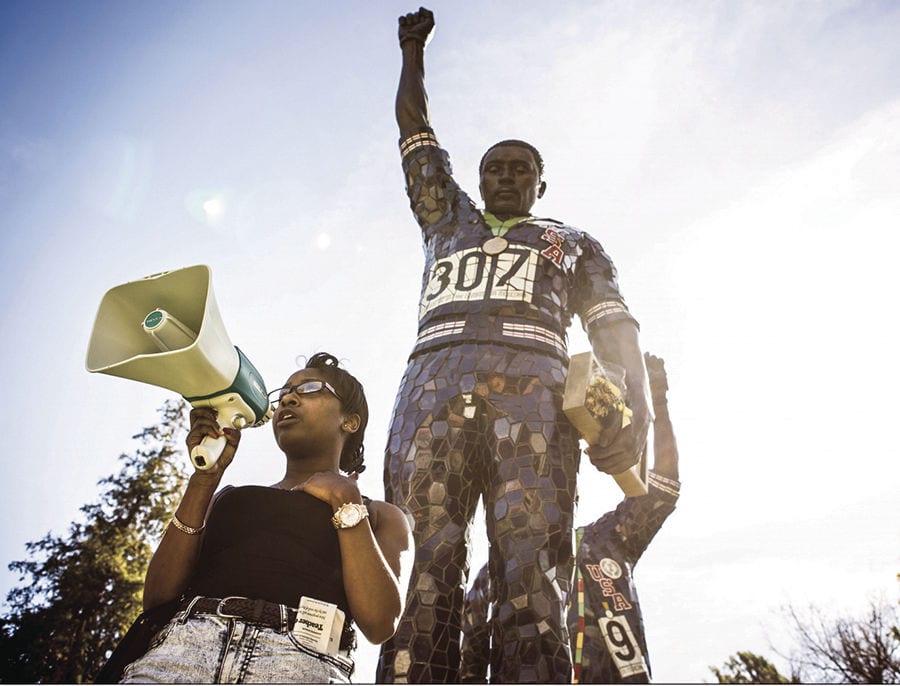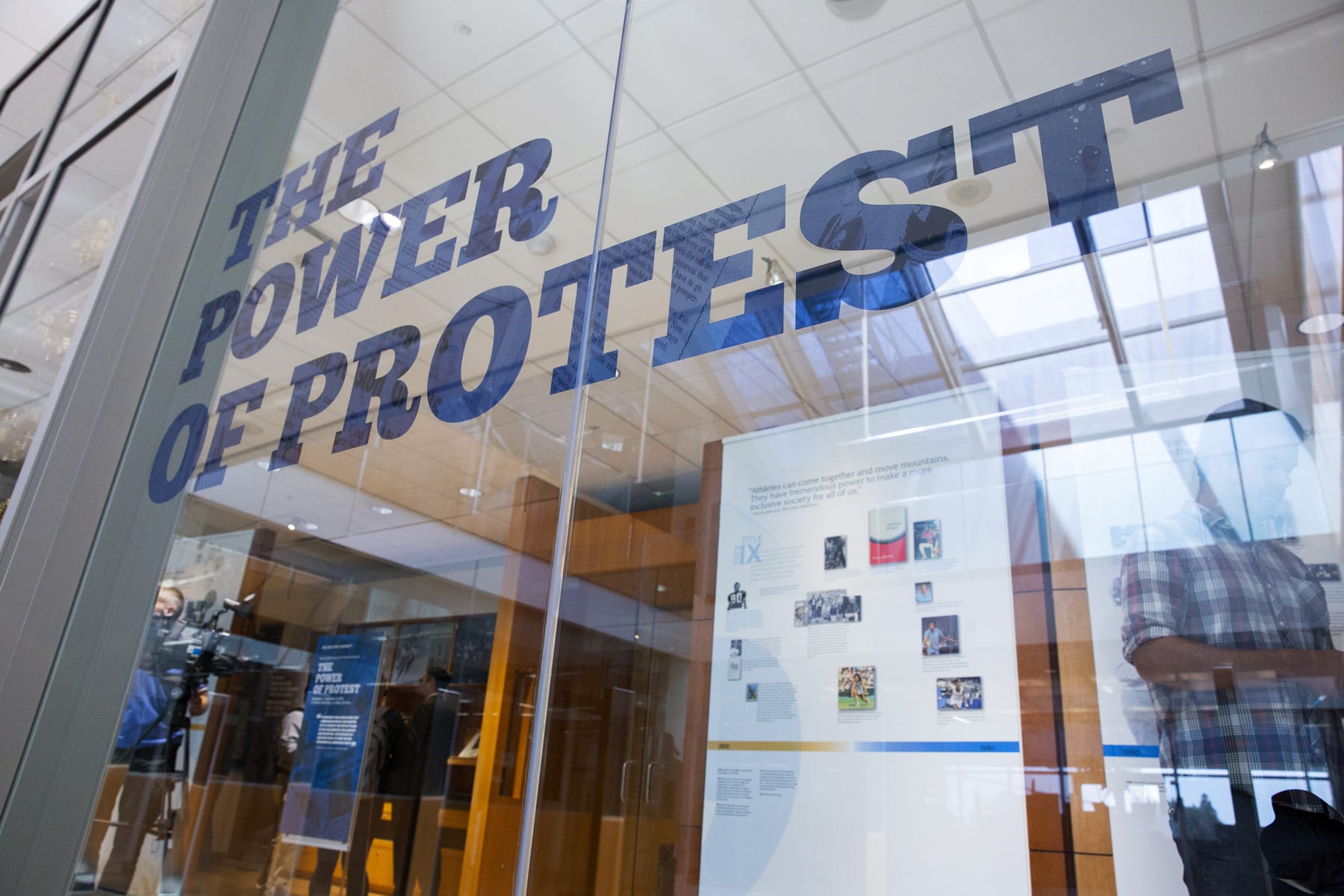Dr. Mary A. Papazian
When the going gets tough as a university president, I tend to look first at the values I wish to affirm for the campus I lead.
Well, times are indeed difficult for many people across the country these days, as issues such as immigration, diversity, sexual assault, free speech and family separations all have captured the nation’s attention at various points this past year. As a result, we have seen an uptick in protests, marches, and calls for change.
We are not immune to any of the challenges facing the country and our region. Members of our own community feel the impacts of homelessness, rising cost of living, uncertainty about the future for our undocumented families, and even a lack of basic needs – including food insecurity. We are attacking that issue directly here at SJSU, and in fact, our upcoming Gala will raise important funds to support a new food pantry on our campus to help feed and nourish hungry students. We are grateful to have an important community partner, Second Harvest Food Bank, with whom we are tackling the problem.
These are all daunting issues, and they will not go away any time soon.
One of the enduring values at San José State is our commitment to social justice and purposeful student engagement, and ensuring that our students play a positive role in helping to shed light on the critical issues of our time. A recent example of student engagement in action, as reported by the San Jose Mercury News, was when the SJSU football team met with San José Police.
“For a couple of hours, the Spartans heard from Chief Eddie Garcia and participated in an anonymous text-based survey of the players’ attitudes toward police, and their thoughts of their own roles as student-athletes in driving the public discourse,” reported the Mercury News.
I could not be more proud of our players and Coach Brent Brennan, and I am grateful for the leadership demonstrated by our city’s police force in initiating such an important conversation.
Throughout October, we will celebrate the legacy of social justice and student activism here at San José State University.
Our very own Institute for the Study of Sport, Society and Social Change will host its next town hall meeting on Oct. 17, “Words to Action: Landmarks and Legacy of Athlete Activism,” and I am optimistic that attendance will be strong.
There will be other activities leading up to the Town Hall, including a film series on athlete activism and an exhibit currently housed in the King Library’s Special Collections and Archives entitled “The Power of Protest: Speed City and the Olympic Project for Human Rights.”
As we enjoy these events and celebrate our role in athletic activism, we need to ask ourselves this question: how exactly does higher education and teaching intersect with student engagement?
Our core mission at SJSU is to educate a diverse student population for professional success and engagement in our democracy. We must continue to be bold in our efforts to achieve that mission.
The more effective we are in re-examining our curricular pathways and at creating a tight-knit community for the students who live here, the more effective we will be in creating a successful, more civic-minded student population ready to engage and succeed in the world around us.
We must embrace our role as public educators. This means we must rethink our design of our academic programs, with particular focus on the intersection between general education and the major, while looking at ways to frame student and community engagement as an extension of the academic curriculum.
As part of our core educational mission, we must strive to develop students who are encouraged and equipped to ask questions, form views based on the truth and on their values, and engage actively in some kind of public service, whether that be at the national, local, or even neighborhood level.
I like to think of this as the “public good” aspect of public education and a way to challenge our students as they prepare for the future. This also is an important dimension of our becoming an engaged university that serves as a resource for our community.
In a recent book, Leading Academic Change, my colleague Elaine Maimon wrote that “vision and strategy can transform any university from an ivory tower to a public square—an agora, where, as in Athens, citizens civilly create common ground and share public space for work, governance, and cultural participation. All universities should be public squares (xix).”
We aim to be such a public square here in the heart of the City of San José, with a focus on educating students as to how they most effectively can influence change on issues that matter to them. Indeed, it is up to students to identify the issues about which they care most deeply.
Our job is to give them the toolbox and the environment where true discourse can occur.
SJSU student-athletes Tommie Smith, John Carlos, and several other athletes from the 1968 U.S. Olympic Team went on to become educators themselves. They set the bar on how to pay forward the power of education. What an admirable and noble legacy! Fifty years from now, which of our San José State students will have risen to the challenges of today? What will be their legacy?

